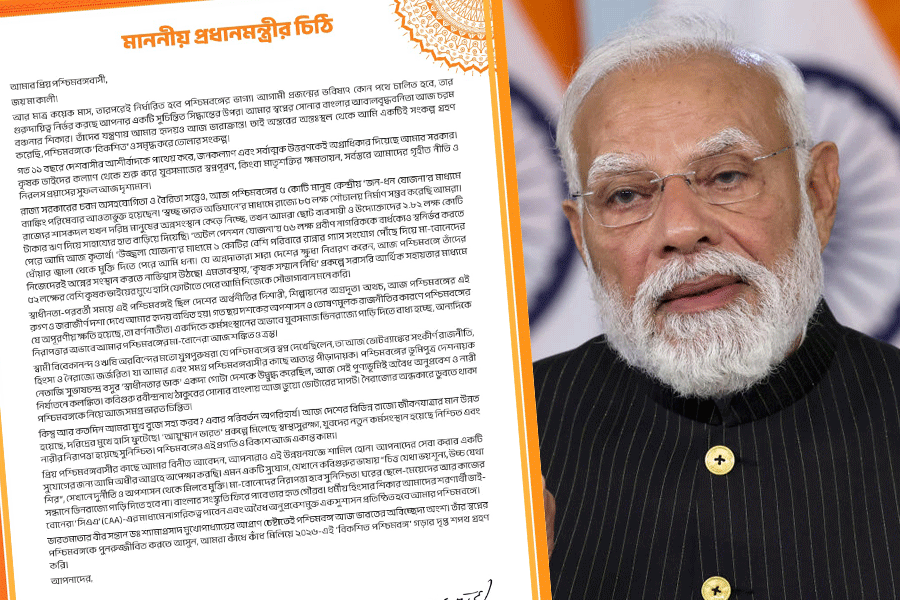Pakistan’s Parliament on Saturday introduced a constitutional amendment that could redefine the country’s military power structure, and further strengthen the hold of Army Chief and Field Marshal Asim Munir.
The 27th Constitutional Amendment Bill, tabled in the Senate, seeks to create a new post, Chief of Defence Forces (CDF), that will oversee and coordinate the army, navy, and air force under a single command.
The post, which the bill links to the sitting Army Chief, effectively expands Munir’s authority beyond the Pakistan Army, giving him operational oversight across all branches of the military.
The proposed changes, introduced to Article 243 of Pakistan’s Constitution, come at a critical juncture. Field Marshal Munir, who was promoted after the May conflict with India, is due to retire on November 28, reported India Today.
The creation of the new post could keep him at the helm of Pakistan’s armed forces beyond his scheduled exit.
Under the amendment, the President will appoint the Army Chief and the Chief of Defence Forces on the advice of the Pakistan prime minister.
It adds that “the Chief of Army Staff, who will also be the Chief of Defence Forces, will appoint the head of the National Strategic Command in consultation with the Prime Minister. The head of the National Strategic Command will be from the Pakistan Army.”
The bill also allows for lifetime titles for top officers, Field Marshal, Marshal of the Air Force, and Admiral of the Fleet. The rank of Field Marshal will remain for life, further formalising Munir’s elevated position within Pakistan’s military hierarchy.
If approved, the post of Chairman, Joint Chiefs of Staff Committee, long considered the central body for inter-service coordination, would be abolished on November 27, coinciding with the retirement of the current chairman, General Sahir Shamshad Mirza, reported The Dawn.
Fallout from the May Conflict
The amendment appears to have roots in Pakistan’s recent military setbacks.
According to reports, the proposal was influenced by lessons from the four-day conflict with India in May, following India’s Operation Sindoor, a response to the April 22 Pahalgam terror attack.
The Indian Air Force’s strikes targeted terror infrastructure in Pakistan-controlled territories and reportedly destroyed or damaged several Pakistani aircraft.
India's Air Chief Marshal A. P. Singh said last month that “at least a dozen Pakistani military aircraft, including US-origin F-16 jets, were destroyed or damaged in Indian strikes.”
After the clashes ended on May 10, the Pakistan government quickly promoted Munir to Field Marshal, making him the second person in the country’s history to hold the title.
The timing of the promotion, followed by this constitutional amendment, has led to growing speculation that the government is reshaping the military structure to secure Munir’s extended leadership.
Law minister Azam Nazeer Tarar, presenting the bill in the Senate, said it contains 49 clauses. “Let me clarify that there are three main areas and two ancillary. It will address five subject areas,” he said.
Senate Chairman Yousuf Raza Gillani referred the bill to the Standing Committees on Law and Justice for review and asked both panels to hold joint meetings for detailed consideration. “The report would be presented before the House,” he said.
The Opposition called out the government’s haste. PTI leader Ali Zafar argued that the move to rush a constitutional amendment through Parliament without proper debate was “inappropriate.”
“Debating the constitutional amendment was not appropriate when the leader of the opposition’s seat remained vacant,” he said, adding, “I would suggest that instead of sending it to the committee, let this Senate be treated as a committee as a whole.”
He further claimed the Opposition had only received the draft on Saturday. “We cannot debate something we have not read,” he said.
Earlier in the day, Pakistan’s Prime Minister Shehbaz Sharif chaired a cabinet meeting via video link from Azerbaijan, where the bill was cleared for parliamentary introduction. “The federal cabinet approved the draft for the 27th Constitutional Amendment and welcomed it to the fullest extent,” state-run PTV News reported.
The amendment has ignited a sharp political and constitutional debate in Islamabad, with Opposition leaders and civil-rights groups cautioning that the proposal could further shift power toward the military, eroding civilian oversight over defence affairs.
The bill now stands at the heart of a larger argument over the military’s constitutional role and the boundaries of civilian authority. If enacted, it would represent the most sweeping change to Pakistan’s defence command since the constitutional confrontations of the 1980s, potentially rewriting, in legal terms, the fragile balance that has long defined the country’s civil-military relationship, reported The Dawn.
If the bill passes, the Commander of Defence Forces, a newly institutionalised position, will unify control of Pakistan’s military apparatus under one figure. It could also reduce the direct operational control of the President and the Council of Ministers over the armed forces, giving the CDF broader autonomy.
For Field Marshal Asim Munir, it represents more than a structural change, it could cement his dominance over Pakistan’s military and extend his influence well beyond his official retirement date.











